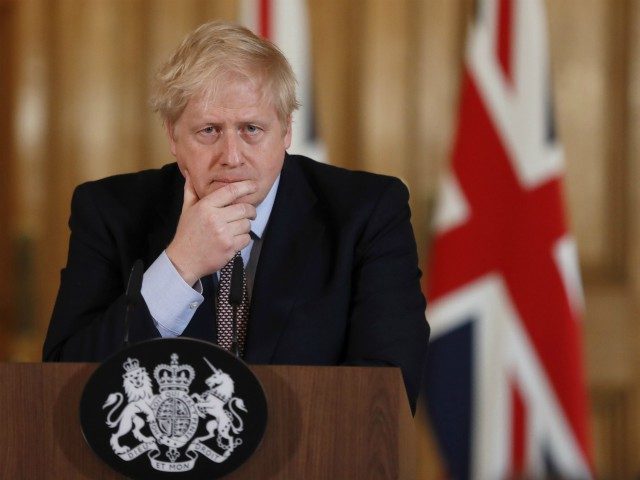Prime Minister Boris Johnson has said that it is “highly likely” there will be a “growing number” of coronavirus cases, with the government’s chief medical officer saying that around one per cent of Britons who contract the virus could die.
The government has released its coronavirus action plan, which outlines responses ranging from the scenario of a mild pandemic “with a low impact on services”, comparable to the 2009 H1N1 pandemic, through to a prolonged pandemic comparable to the 1918 Spanish Flu that could result in pressure on public services and businesses.
Worldwide, there have been 91,320 suspected cases, 48,164 recoveries, and 3,118 deaths. In the UK, 51 people have tested positive for coronavirus.
The country is currently in the “containment” stage, but if the virus spreads the government’s plans will come into action in proportion to advice from medical and scientific experts. Measures include closing schools, limiting the use of public transport, encouraging home working, and limiting mass public gatherings.
Under more disruptive scenarios — where the UK goes from “containment” to “mitigate” — as many as one in five employees could be off sick from work at the peak of the virus’s contagion. Short-staffed fire stations and police forces may only respond to serious call-outs. The army could also be called in to support emergency services. In response to a rising number of Britons seeking medical attention — an estimated three million — the NHS may recall recently-retired nurses and doctors to work.
Speaking alongside Chief Medical Officer Professor Chris Whitty and Chief Scientific Adviser Sir Patrick Vallance from Downing Street on Tuesday, Prime Minister Johnson said: “Today we have published the coronavirus action plan, setting out how all four parts of the UK will take all necessary and reasonable steps to prepare for and tackle this outbreak.
“The plan has four strands: containing the virus, delaying its spread, researching its origins and cure, and finally mitigating the impact should the virus become more widespread.”
Mr Johnson said that while “for the overwhelming majority of people who contract the virus, this will be a mild disease from which they will speedily and fully recover”, he said “it is highly likely we will see a growing number of UK cases”.
Senior Tory Says Coronavirus Reveals Fragility of Globalisation, Global Economy https://t.co/kL5TstirBL
— Breitbart London (@BreitbartLondon) March 2, 2020
“Crucially, we must not forget what we can all do to fight this virus, which is to wash our hands with soap and hot water for the length of time it takes to sing happy birthday twice,” Johnson said, repeating advise already given by medical professionals.
Reiterating that some of the plans are for the worst-case scenario, the prime minister sought to avoid national panic, saying that the UK is responding well to the worldwide outbreak and the vast majority of those who will catch the virus will have mild symptoms.
Johnson’s statement was backed up by the University of Edinburgh’s Dr Devi Sridhar. Dr Sridhar, who holds a Personal Chair in Global Public Health, told Sky News that 80 per cent of the cases — which will initially present themselves as a fever and a dry cough — will be mild and will result in recovery.
The prime minister concluded his press conference saying: “I want to stress that for the vast majority of the people of this country, we should be going about our business as usual.”
However, the numbers affected could still be very high. Speaking during the press conference, the UK’s chief medical officer admitted that the maximum proportion of the population at risk of catching coronavirus could be as high as 80 per cent, but said it was the strong opinion of him and his colleagues that that proportion would likely be a lot lower. Professor Whitty confirmed that the mortality rate would be around one per cent for those who have contracted the virus, saying that unlike the Spanish Flu, which saw children worst affected, older people and those with pre-existing medical conditions are considered the most vulnerable and likely those with the highest mortality rate.
WATCH: Merkel Refused Handshake Amid Coronavirus Fears https://t.co/oHtq9XlL8D
— Breitbart London (@BreitbartLondon) March 3, 2020

COMMENTS
Please let us know if you're having issues with commenting.